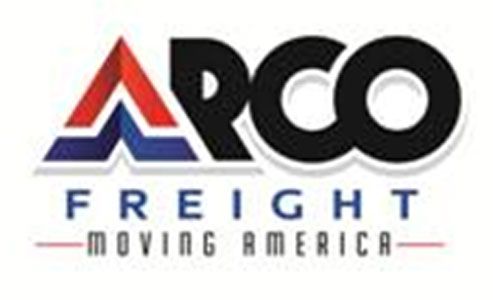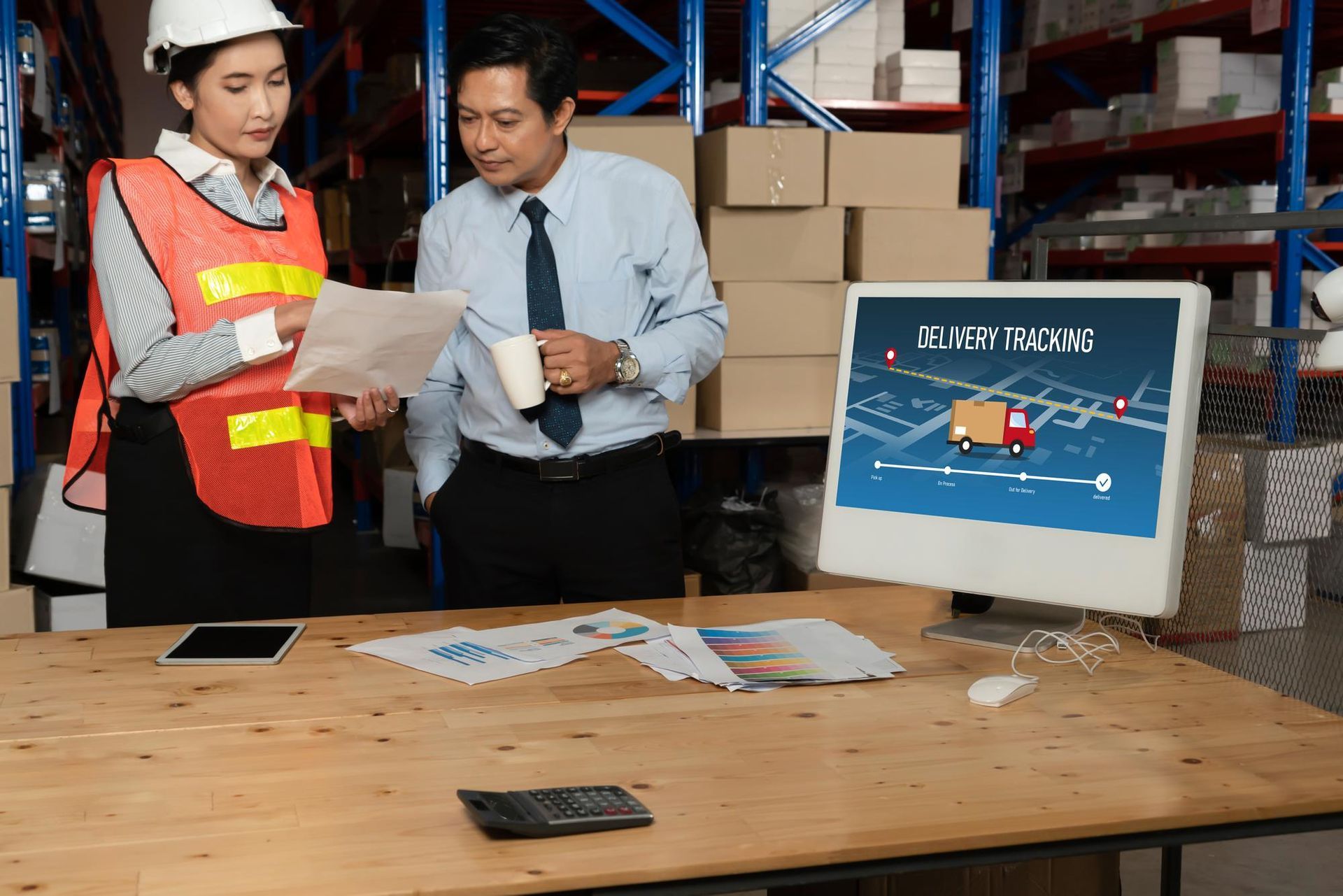The Role of a Container Freight Broker in Streamlining Supply Chain Operations
Understanding Container Freight Brokers
Container freight brokers are essentially the middlemen in the world of shipping and logistics. They connect shippers, who have goods to transport, with carriers, who have the means to move these goods. These brokers don't own ships or trucks; instead, they have extensive networks and relationships with companies that do.
A container freight broker's job is multi-faceted. They not only ensure that goods get from point A to point B, but they also handle a lot of the paperwork and logistics involved. This includes arranging shipping and delivery times, tracking shipments, and dealing with customs and other regulatory requirements.
Furthermore, container freight brokers are experts in their field. They understand the complexities of the shipping industry, including fluctuating rates, peak seasons, and various regulations. Their expertise allows them to navigate these challenges efficiently, saving time and reducing costs for their clients.
In essence, container freight brokers serve as a crucial link in the supply chain, ensuring smooth and efficient operations. Their role becomes even more critical when we consider the complexities and challenges of global logistics.
The Connection Between Container Freight Brokers and Supply Chain Operations
In the intricate web of supply chain operations, a container freight broker acts as a critical junction point. They are at the heart of the action, connecting various stakeholders and ensuring that goods flow smoothly from origin to destination.
Their role in supply chain operations goes beyond mere matchmaking between shippers and carriers. They are involved in every step of the logistics process, from planning and execution to monitoring and control. They help determine the most efficient routes, negotiate rates with carriers, coordinate shipping schedules, track shipments, and handle any issues that arise during transit.
Container freight brokers also play a significant role in managing the information flow in the supply chain. They serve as a central communication hub, facilitating timely and accurate exchange of information between shippers, carriers, and other stakeholders. This ensures that everyone is on the same page, leading to more coordinated and streamlined operations.
Overall, the role of a container freight broker is integral to the functionality of the supply chain. They help ensure that all operations run smoothly and efficiently, contributing significantly to the overall success of any logistics endeavor.
The Value of Container Freight Brokers in International Trade
As global trade continues to expand, the role of container freight brokers becomes increasingly important. They are a vital component in international trade, serving as the crucial link between manufacturers, retailers, and consumers across different countries.
International logistics is fraught with complexities. Different countries have varying regulations, customs procedures, and documentation requirements. Navigating through these complexities can be a daunting task for businesses. This is where container freight brokers come in. They have the expertise and experience to manage these complexities, ensuring smooth and compliant movement of goods across borders.
Additionally, container freight brokers have a comprehensive understanding of the global shipping market, including fluctuating freight rates, peak shipping seasons, and capacity constraints. They leverage this knowledge to provide cost-effective and time-efficient shipping solutions for their clients.
In essence, container freight brokers make international trade easier and more efficient. They handle the logistical complexities, allowing businesses to focus on their core operations. By doing so, they not only contribute to the success of individual businesses but also facilitate the smooth functioning of global trade.
The Future of Container Freight Brokers in the Era of Digitalization
In the era of digitalization, the role of container freight brokers is evolving. Technology is reshaping the shipping industry, bringing changes that could potentially disrupt traditional brokerage models.
Digital freight platforms and blockchain technology, for instance, are making it easier for shippers and carriers to connect directly, eliminating the need for middlemen. These platforms provide real-time tracking, instant quotes, and automated paperwork, offering a level of convenience and efficiency that traditional brokers may find hard to compete with.
However, this does not mean that the role of container freight brokers is becoming obsolete. On the contrary, brokers who can adapt to these changes and leverage technology to their advantage will likely thrive. For instance, brokers can use digital tools to enhance their service offerings, improve operational efficiency, and deliver more value to their clients.
Furthermore, despite the advances in technology, the human touch that brokers provide – such as their relationships with carriers and their ability to negotiate rates – cannot be easily replicated by machines. As such, container freight brokers will continue to play a crucial role in the shipping industry, albeit in an evolved form.
In conclusion, the future of container freight brokers in the digital era is poised to be a blend of technology and tradition. Those who can strike the right balance between these two elements will likely emerge as winners in the new age of shipping and logistics.
The Challenges and Opportunities for Container Freight Brokers
Despite their crucial role in the shipping industry, container freight brokers face several challenges. These include increased competition, price pressure from shippers and carriers, regulatory changes, and the need to keep up with technological advancements.
However, these challenges also present opportunities for growth and innovation. For instance, the rise of digital freight platforms, while posing a threat to traditional brokerage models, also opens up new possibilities for brokers to enhance their service offerings and improve operational efficiency.
Increased competition can also be a catalyst for innovation. To stand out in a crowded market, brokers must continually strive to deliver superior service, find new ways to add value for their clients, and differentiate themselves from their competitors.
Regulatory changes, such as stricter emission standards and increased scrutiny on safety and compliance, can also create opportunities for brokers who can help shippers navigate these changes and ensure compliance.
Finally, as global trade continues to grow, the demand for freight brokerage services is likely to increase as well. Brokers who can seize these opportunities and adapt to the changing landscape will not only survive but thrive in the evolving shipping industry.
In conclusion, while the role of container freight brokers is fraught with challenges, it is also filled with potential for growth and innovation. By embracing change and leveraging technology, brokers can redefine their role in the shipping industry and secure a prosperous future.
Embracing Sustainability: A New Frontier for Container Freight Brokers
As the world grapples with the effects of climate change, sustainability has become a key consideration in all industries, including shipping. This presents yet another challenge, but also a significant opportunity for container freight brokers.
Shipping is responsible for a significant portion of global CO2 emissions. As such, there is increasing pressure on the industry to reduce its environmental footprint. This has led to the introduction of stricter emission standards and increased demand for greener shipping options.
For container freight brokers, this means they must not only ensure compliance with these new standards but also find ways to offer more sustainable shipping solutions. This could include partnering with carriers that use cleaner fuels, optimizing routes to reduce fuel consumption, or using digital tools to improve operational efficiency and reduce waste.
Brokers who can successfully navigate this shift toward sustainability will likely have a competitive advantage. Not only can they meet the growing demand for greener shipping options, but they can also position themselves as leaders in sustainable shipping, attracting clients who value sustainability and are willing to pay a premium for it.
In conclusion, sustainability is not just a challenge for container freight brokers, but a new frontier for growth and innovation. By embracing sustainability, brokers can secure their place in the future of shipping and make a meaningful contribution to the fight against climate change.
The Role of Artificial Intelligence in Container Freight Brokering
Artificial intelligence (AI) is another technological advancement that is reshaping the container freight brokering industry. From predictive analytics to automation, AI offers numerous opportunities for brokers to enhance their service offerings and improve operational efficiency.
Predictive analytics, for instance, can help brokers forecast demand and pricing trends, enabling them to make more informed decisions and provide better advice to their clients. AI can also automate routine tasks, such as paperwork and communication with carriers, freeing up brokers to focus on more strategic aspects of their work.
Furthermore, AI can enhance transparency and traceability in the shipping process. For instance, AI-powered tracking systems can provide real-time updates on a shipment's location and status, giving shippers peace of mind and helping brokers manage expectations and resolve issues more efficiently.
However, the adoption of AI also comes with challenges. These include the need for significant investment in technology and training, data privacy concerns, and the risk of job displacement. Brokers must navigate these challenges carefully to harness the full potential of AI.
In conclusion, while AI presents both opportunities and challenges, it is clear that it will play a pivotal role in the future of container freight brokering. Brokers who can successfully integrate AI into their operations will likely gain a competitive edge and be better equipped to meet the evolving needs of shippers and carriers.
Conclusion: Embracing the Future of Container Freight Brokering
The container freight brokering industry is undergoing a period of significant change, driven by factors such as technological advancements, sustainability pressures, and the impact of the COVID-19 pandemic. These changes present both challenges and opportunities for brokers.
Given these evolving dynamics, brokers must adapt and innovate to stay competitive. This means embracing digitalization, pursuing sustainable practices, leveraging artificial intelligence, and finding ways to navigate disruptions like the COVID-19 pandemic.
At Arco Freight, we are committed to staying at the forefront of these changes. We leverage technology to enhance our service offerings, prioritize sustainability in our operations, and use our expertise to help our clients navigate the complexities of the shipping industry.
Whether you're a shipper looking for reliable, efficient, and sustainable shipping solutions or a carrier seeking to optimize your operations, we're here to help. Contact us today at 208-324-4706 to learn more about how we can support your shipping needs in this changing landscape.
As we look to the future, we are excited about the opportunities these changes present. By embracing innovation and sustainability, we believe we can provide even better service to our clients and make a positive impact on the world. Let's navigate the future of container freight brokering together.










